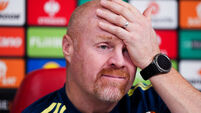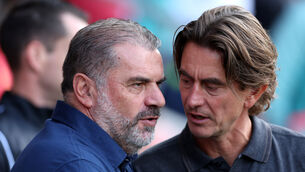FAI renews target to clear debt by 2020

Accounts for year-end released to delegates yesterday showed the fruits of Ireland’s revival during the Euro 2016 qualification campaign as visits by Poland, Scotland, Germany, Georgia, and Bosnia-Herzegovina during the calendar year helped bolster turnover by €8m.
Although sponsorship streams were surprisingly down during a qualification year, the overall income of €46m resulted in a surplus of €5.8m before an increased grant allocation of €2m was distributed.











